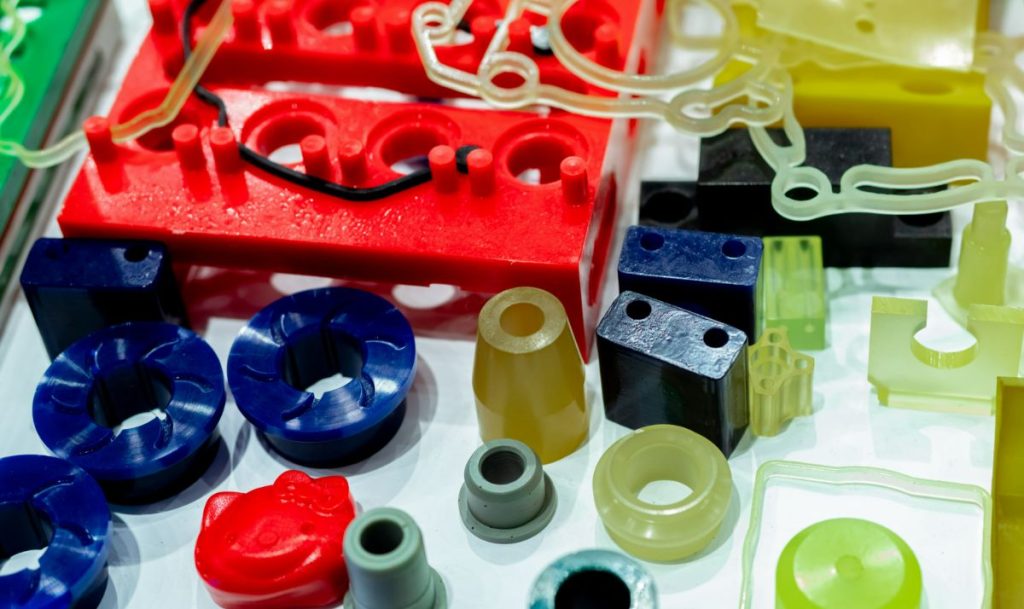What are the common plastics used in automotive batteries?
- Polypropylene
- Polyethylene
- Polyvinyl Chloride
- Acrylonitrile Butadiene Styrene
- Polycarbonate
- Polyurethane
- Nylon
- Epoxy Resins
Overview
In its composition, automotive batteries make use of many kinds of plastics for their different components. From its battery case to the bonding, there is a material that best suits these parts thanks to different characteristics attributed to the specific plastic.
Due to advancements in mold production from China and other leading plastic-producing nations, the automotive industry is undergoing a significant and game-changing evolution. The quest for more environmentally friendly automotive has spurred numerous technological advancements, with a focus on their battery systems.
Many of these batteries depend on a range of materials including plastic to guarantee their effectiveness and dependability. In this article, we will explore common plastics used in automotive batteries, uncovering their functions and importance within the field.
Polypropylene (PP)
Polypropylene stands out as a favored option when it comes to crafting battery cases and covers. This preference is owed to its exceptional resistance to chemicals and capacity to endure harsh temperatures, making it the perfect material for protecting the sensitive components of batteries.
Additionally, the lightweight characteristics of polypropylene not only improve vehicle efficiency and performance but also support fuel economy and reduce emissions, aligning with the sustainability objectives of the automotive industry.
Polyethylene (PE)
Polyethylene stands out as a frequently used material in battery separators, known for its excellent insulating characteristics. Its capacity to efficiently prevent short circuits plays a crucial role in maintaining the battery’s safety and dependability, thereby ensuring smooth functionality and peace of mind for users.
Its widespread use in battery technology reaffirms its reliability and enduring importance in an evolving industry focused on innovation and safety. This underscores its critical role in ensuring global battery user satisfaction and success.
Polyvinyl Chloride (PVC)
PVC is a common choice for insulating and protecting wires in automotive batteries due to its strong electrical insulation and fire-resistant properties. These characteristics make it an excellent fit for these vital applications.
PVC’s ability to prevent electrical leaks and withstand high temperatures further enhances its suitability for these essential tasks.
Acrylonitrile Butadiene Styrene (ABS)
ABS is renowned for its exceptional strength and impressive resistance to impact, making it a valuable choice in the construction of battery venting systems and a variety of other critical components in the automotive battery industry. In these applications, where durability and protection are important, ABS consistently delivers reliable performance. Its robustness ensures the safe and long-lasting operation of vital battery components, contributing significantly to the overall safety and efficiency of automotive batteries.
ABS is particularly well-suited for battery venting systems, where its resilience shields against potential damage from impacts and environmental stressors. This protection is essential to maintain the integrity of the battery and prevent potential hazards
Polycarbonate
Polycarbonate is a versatile plastic renowned for its transparent properties, which render it an ideal choice for applications in battery cooling systems and covers within the automotive industry. Its transparent nature enables easy monitoring of critical battery components, providing an invaluable advantage by enhancing visibility and safety during battery maintenance and operation.
In battery cooling systems, the transparency of polycarbonate permits a clear view of the cooling mechanisms, ensuring that they function optimally. This feature is vital for maintaining the battery’s temperature and overall performance, which is especially crucial in electric vehicles where batteries are a central component.
Polyurethane (PU)
Polyurethane is frequently used as a material in automotive battery sealing and gasket applications, playing a vital role in maintaining a secure enclosure for the battery.
Its remarkable flexibility and resistance to a variety of chemicals are key factors in enhancing the battery’s longevity and safeguarding it from potential environmental threats and contaminants.
Nylon
Nylon is prized for its exceptional mechanical properties and resistance to wear and tear. This makes it an ideal choice for use in automotive battery systems, particularly in battery terminals and connectors. Its ability to withstand the rigors of automotive use significantly enhances the durability and dependability of these critical components.
As a result, nylon stands out as an excellent and reliable selection for enhancing the performance and longevity of automotive battery systems.
Epoxy Resins
Epoxy resins find common use in bonding and encapsulating batteries, thanks to their remarkable dielectric strength and exceptional adhesive properties. This robust bonding not only secures the inner components of the battery but also substantially enhances its overall reliability and durability.
By providing a protective and steadfast enclosure, epoxy resins play a vital role in fortifying the battery’s integrity, ensuring that it operates consistently and remains dependable throughout its lifespan.
Key Takeaway
The automotive sector’s quest for greener and more effective vehicles hinges on its creative utilization of materials during the battery production process. The common plastics used in automotive batteries play an essential role in guaranteeing their optimal performance, safety, and durability.
At Richfields, a trusted Plastic Injection Molding Company located in China, we not only grasp the importance of these plastics but also provide a comprehensive array of services all under one roof to meet the ever-changing requirements of the automotive sector.
We go the extra mile to ensure customer satisfaction and firmly believe in establishing long-lasting business connections centered around delivering value for your investment. Don’t hesitate to get in touch with us. Your success within the automotive industry stands as our ultimate goal.
